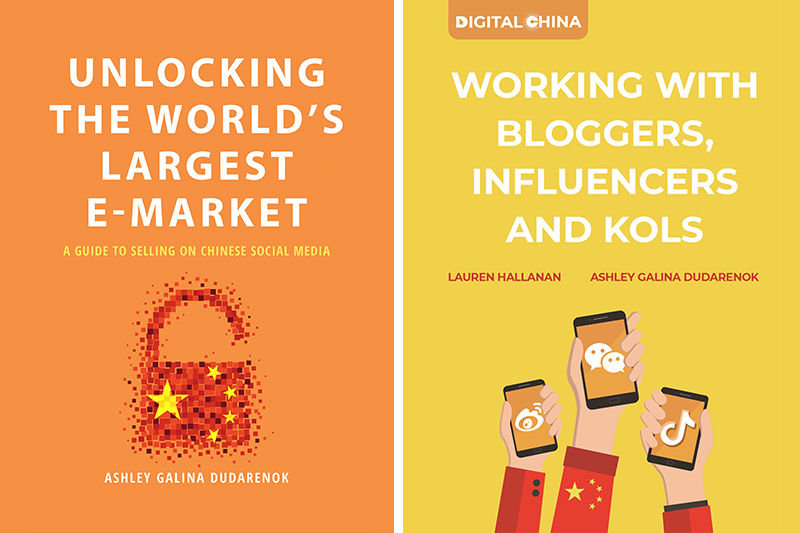China marketing expert and serial entrepreneur Ashley Galina Dudarenok discusses how businesses should target the world’s fastest-growing major economy – and how they need to adapt in the face of New Retail.
Ashley Galina Dudarenok is a formidable force in China’s marketing scene. Regularly featured by Forbes, CNBC, Huffington Post, SCMP, Technode and Hong Kong Economic Times, her advice on China’s digital future is highly sought after. As a member of Alibaba’s Global Influencer Entourage and being a professional speaker, she frequently travels across China to offer her opinion on all things marketing. Ashley is the founder of multiple startups, including digital marketing agency Alarice and marketer training company ChoZan and this month she released her second book on Amazon, an international bestseller titled Digital China: Working with Bloggers, Influencers & KOLs. Sitting down with the Hive Life team at a quaint café just next to the Hive Wan Chai, she gave us her insights on the hidden challenges of penetrating the world’s largest consumer, as well as a taste of the technology that’s changing the future of retail.

With the world’s largest population at 1.4 billion, it’s not difficult to see why companies across the world are targeting China’s highly lucrative consumer base. However, as things stand, China’s market is massively oversupplied – customers can easily go elsewhere for the same product, making it difficult for new firms to establish themselves. “China is more expensive than the rest of the world for marketing, and the KPIs are lower,” Ashley warns. “You cannot apply the same ROI in China, especially for the first 16 to 18 months. People don’t know you, so you have to invest a lot to raise awareness of your brand.”
China has over 60 unique social media platforms, many of which are extremely niche. “Do your research. Look into what your competitors are doing. Figure out who your audience is and focus on a maximum of three to four platforms,” Ashley advises. “You have to strategise.” Partnerships with influencers are also crucial to getting the word out about your product. “Chinese blogs are the only blogs in the world that have the power to sell your products,” Ashley explains. “But that doesn’t mean you’re going to be successful from the first campaign. You need to introduce the product to the audience.”
Problematically, firms new to China often assume – incorrectly – that the needs of Chinese consumers are homogenous. “China is not a single market. It’s like asking, what do Europeans want? You would never sell to a guy from Spain the same way you would sell to someone in Poland,” Ashley laughs. “While Europe has 23 countries, China has 33 markets. People in Beijing are going to have completely different aspirations from people in Guangzhou.”

Over the last three decades, China has developed levels of responsiveness in the retail industry unparalleled elsewhere in the world that its consumers now take for granted. Alibaba now offers a 100% refund, even on delivery, whilst Alibaba’s Taobao allows you to communicate with sellers 24/7. “These are extremely sophisticated customers who demand amazing service,” Ashley explains of the upper middle class in China’s first and second-tier cities. “If they are asking you a question online, they expect a reply right now at 3 o’clock in the morning.” In order to compete, firms need to tailor not just their packaging but their products specifically to the Chinese market. “There’s still that myth that Chinese consumers want to buy everything foreign,” Ashley observes. “15 years ago, that was the case. Right now, modern Chinese consumers don’t just want a foreign product. They want a foreign product of a certain quality created for them. So if you’re a cosmetic company from New Zealand, put an Asian face on the packaging. Create a line of whitening products; don’t just sell something for pimples. You need to adapt.”
With Alibaba’s New Retail on the horizon, Ashley anticipates a radical change in the consumer’s retail experience. Simply put, New Retail is the concept that each person, each user has a cloud of data around him. Different retailers will be able to plug into this data to offer you instant deals, instant promotions and instant services while you stay anonymous. Personalised shopping recommendations – and even personalised price tags – are created based on user data and presented via VR technology. “If we look at the same shelf, we will see different products because of this data that it has about me,” Ashley says. “And if I’m the VIP in this store and I’m buying this book, the store will cross out the price and say Ashley’s price.”

Facial recognition technology and micro-motion will also help stores become more responsive to consumer demand, as well as provide a new form of entertainment – titled retailtainment. “At the moment, this technology is still very new, so you have to exaggerate your emotions. Let’s say you come to a pack of bananas in a supermarket and there’s a sign that tells you to smile for a discount. The bigger you smile, the higher the discount you get.” With digital mirrors making live streaming more and more convenient at hair salons, makeup counters and fashion stores, Ashley anticipates China’s blogger culture will only grow, with KOLs gaining even more influence. “Consumers will become bloggers so our marketing budgets will also be distributed very differently a couple years from now,” she predicts. “It’s a bit like Airbnb – if you like something and your friend follows your recommendation, both you and them will be rewarded.”
Compared to the rest of the world, China offers unique opportunities to integrate New Retail seamlessly into everyday life. “In other places such as the US with Amazon, they are digitalising retail processes, but it’s not nearly to the same degree,” Ashley explains. “They are not making that link, they are not penetrating, and they are not offering the same services because of the privacy laws that govern data in the West. In China, that’s different.” Equipped with a whole arsenal of burgeoning technologies, China is steaming ahead with a radically different retail scene. For Ashley Galina Dudarenok, the potential applications are boundless: “Technology is integrating non-traditional aspects of life in China. Right now, you can already divorce over WeChat. And a couple of years from now, maybe you’ll shake for divorce.” It’s a whole new landscape set to reimagine more than how we shop.





